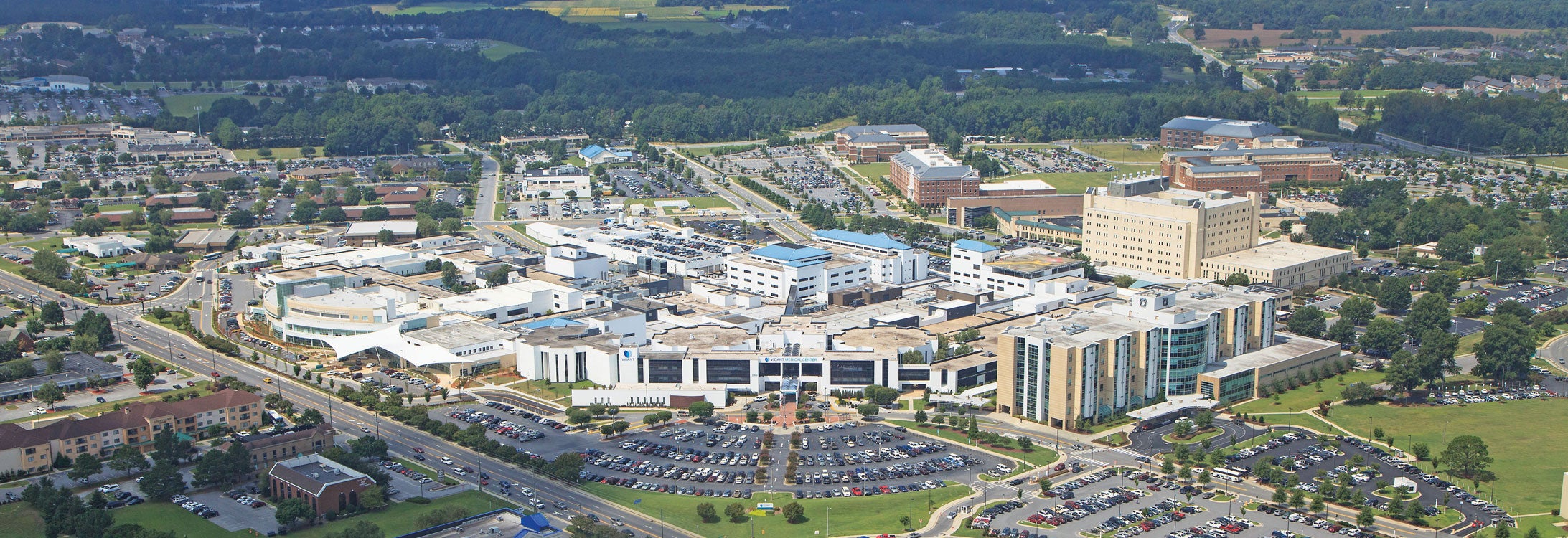Resident Education
Chair’s Report
Every week a PGY-2 presents a topic of their choosing in front of their peers. This is an opportunity for residents to receive constructive criticism on presentation skills. Residents usually present novel clinical trials along with topics that are intriguing.
Morning Report
Residents present interesting/challenging cases that were admitted to our services (General Medicine, Pirate, Nephrology, Neurology, MICU, Cardiology, and Consult services). One day per week will be devoted to board preparation.
Grand Rounds
All house staff and faculty under the umbrella of the Internal Medicine Department attend Grand Rounds every Thursday at noon. We have speakers from all over the country and within the institution who present current research, updates in clinical medicine, clinicopathologic cases and more.
Friday Conferences
Each week on Friday from 1:00 pm to 4:00 pm is protected educational time. Pagers are handled by attendings or fellows and residents are able to have protected learning.
Journal Club
PGY-3 residents discuss new research, articles in peer-reviewed journals.
ECU quality improvement and patient safety (QIPS) curriculum
Summary: Here at ECU, we recognize the importance of health system science in resident education. We have a formal curriculum on quality improvement and patient safety that comprises of readings and lectures, QI workshops, mentored longitudinal QI project, and variety of patient safety experiences. We also have director’s block during PGY-2 year where residents are exposed to important topics in health policy and management, and site visits (community health center, health department, etc.) to enhance their understanding of socioeconomic determinants of health.
Vision: Make QIPS an integral part of the ECU Internal Medicine Residency experience
Objectives:
- Equip residents with basic knowledge and tools of QIPS to deliver safe, effective, patient centered, timely, efficient, and equitable care
- Promote culture of safety in the program and institution and carry these principles forward in residents’ future careers
- Meet ACGME requirements for Practice-Based Learning and Improvement (PBLI) and Systems-Based Practice (SBP)
- Engage faculty and residents in QIPS related work
QIPS Curriculum Overview
| Requirements | PGY-1 | PGY-2 | PGY-3 |
|---|---|---|---|
| IHI introductory course and required readings | + | - | - |
| Safety event reporting | + | + | + |
| Learning from defect presentation | + | - | - |
| QI project | +/- | + | + |
| Mock RCA | + | + | + |
| M&M report | - | - | + |
Please see the details of QIPS curriculum below:
M&M Report:
As part of the QIPS curriculum, our PGY-3 residents present M&M report on Thu mornings at morning conference. They present cases with potential opportunity to address system level safety issues and reduce preventable errors. Root cause analysis is an integral part of the presentation, and action items are generated in the end which would typically lead to QI projects.
Simulation Lab
Simulation is a unique experience and an educational tool in our program to foster interdisciplinary teamwork, improve communication, clinical knowledge and quality/ safety based training.
These sessions are usually held during morning report hours twice a week.
These sessions are not limited to but usually include practicing procedures, airway and ACLS skills. We also have five core pre code cases that are run by interprofessional teams which include:
- Detect easily reversible causes of altered mental status
- Appropriate use of noninvasive ventilation for respiratory failure
- Approach to tachyarrhythmias
- Recognition and management of sepsis and septic shock
- Approach to refractory hypoxia
Trainee teams comprise of:
- 3 to 4 residents
- Medical, pharmacy, respiratory therapy, nursing students
- Emergency Response Team nurse
- Simulator facilitator
- Critical Care fellows
At the end of each session, there is debriefing where participants talk about: what went well, what the team can improve on and strategies to use during the next scenario. Debriefing methods are tailored according to the learner where the facilitator leads the discussion with open ended questions.
Our Simulation curriculum is ever-evolving and we have crossed several barriers to make it a versatile learning platform that promotes long term clinical knowledge retention and supplements traditional didactic formats.
There is always something to learn and reflect upon at the end of every session!
